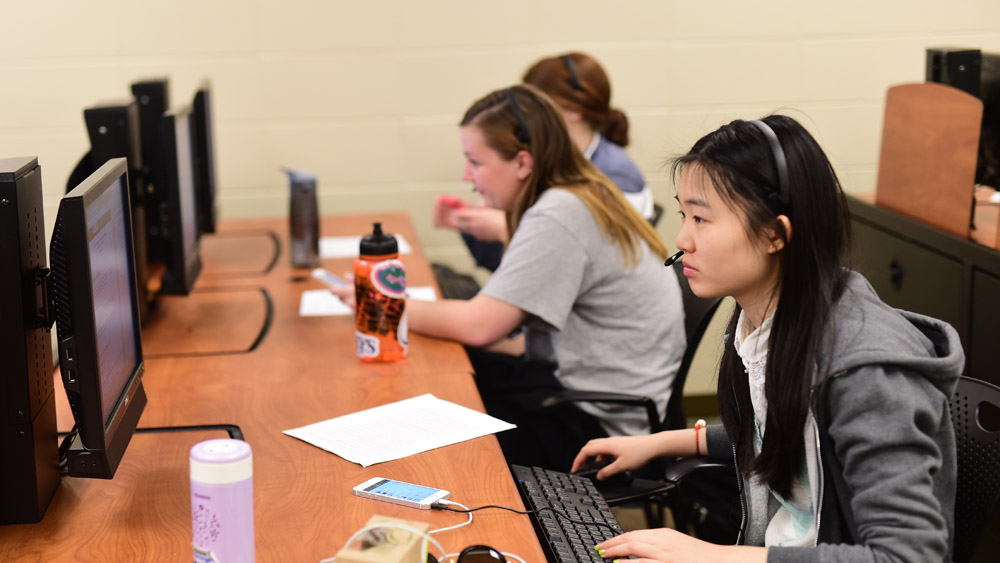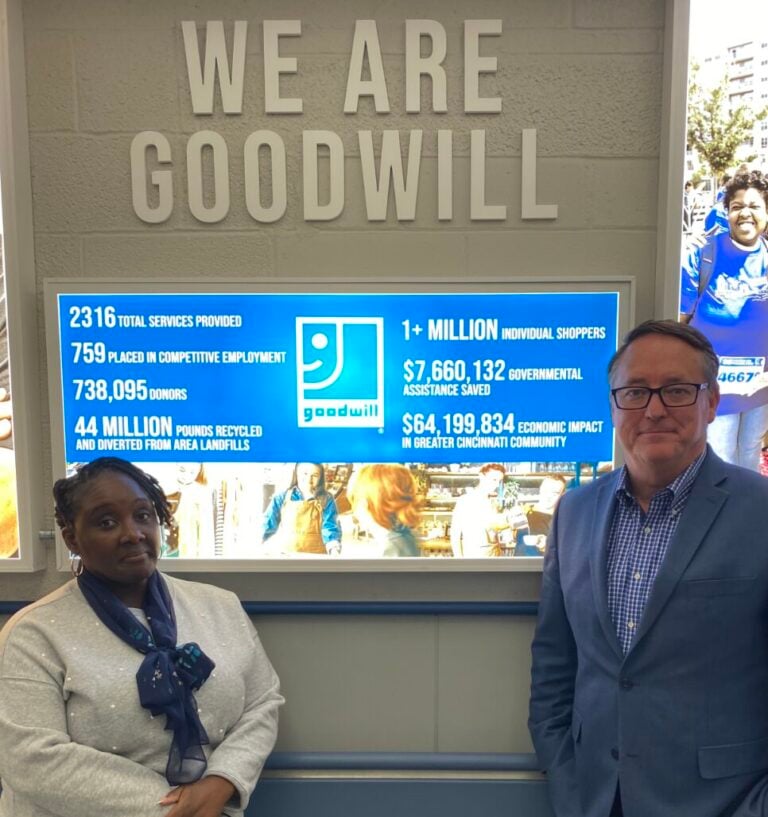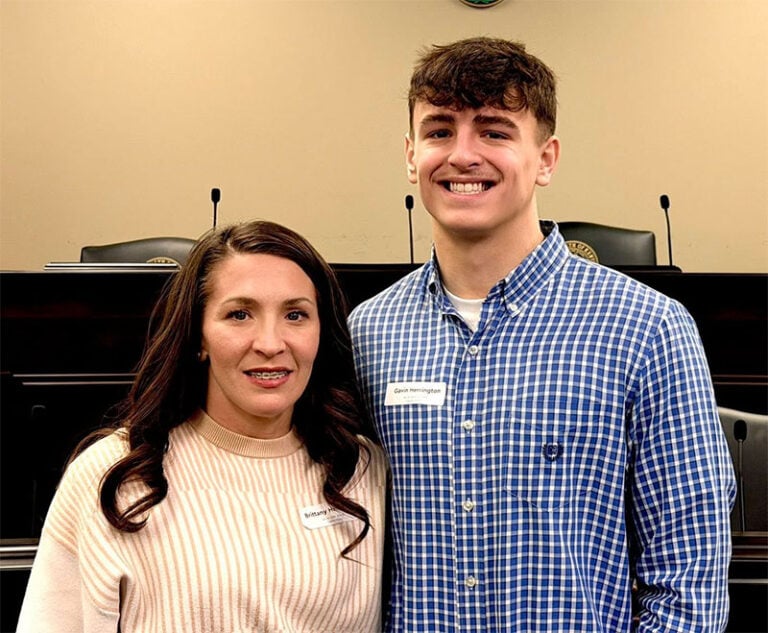
By Benjamin Knoll
Special to NKyTribune
A nationwide poll conducted by political scientists from Centre College shows that by a wide margin, Americans favor equal treatment under the law over respecting individual religious beliefs when the two come into conflict.
This extends to all partisan groups, major religious denominations, and both frequent and infrequent church attenders. Roughly two-thirds of Americans report that individuals should be required to serve alcohol, fill prescriptions, issue marriage licenses to same-sex couples and hire gay employees even if doing so would conflict with sincerely held religious beliefs. Fewer Americans favor requiring wedding bakers and photographers to provide services for same-sex weddings or requiring pastors and priests to preside over same-sex marriage ceremonies.

This poll also finds that Donald Trump continues to command a plurality of support among Republicans, while Hillary Clinton and Bernie Sanders are in a virtual tie among Democrats for the 2016 presidential primary nomination. Republicans are also more likely to believe that Donald Trump will ultimately win the Republican nomination and Democrats believe that Hillary Clinton will ultimately win the Democratic nomination.
The 2015 Colonel’s Canvass Poll is a randomized, nationally representative telephone survey conducted Sept. 24 through Oct. 1. It sampled 487 respondents, 62 percent of which were reached via landline, and 38 percent were reached via cellphone. The margin of sampling error for the survey is plus or minus 4.5 percent for the full sample and approximately 7 percent for the partisan subsamples.

Conducted by Assistant Professor of Politics Benjamin Knoll and Associate Professor of Politics Chris Paskewich, the survey is part of a community-based learning component of their fall 2015 courses at Centre College. In all, 77 students participated in fielding the survey and administering the questions to respondents.
Opinions on religious freedom accommodations
Similar to other recent surveys, the Colonel’s Canvass Poll finds strong support for equal treatment under the law when it comes to religious freedom controversies. Of survey respondents, 73.8 percent report that “treating equally under the law” is more important than “respecting religious beliefs,” when the two are in conflict. Only 14.9 percent believe that “respecting religious beliefs” should take priority.
This sentiment is widespread among partisans of all stripes: 92.8 percent of Democrats and Democratic leaners, 86 percent of independents, and 68.8 percent of Republicans and Republican leaners agree that “treating equally under the law” is more important. There is also widespread consensus among Evangelical Protestants (70 percent), mainline Protestants (89.2 percent), and Catholics (84.4 percent). Further, two-thirds (68.5 percent) of frequent church attenders agree that “treating equally under the law” is more important, as well as 93.8 percent of infrequent church attenders.
Kentucky county clerk Kim Davis made headlines last month for refusing to issue marriage licenses to same-sex couples. In total, 65.6 percent of survey respondents report that they either strongly or somewhat agree that county clerks should “be required to issue marriage licenses to same-sex couples [even] if doing so would conflict with sincerely held religious beliefs.” Of those respondents, 26.6 percent strongly or somewhat disagree.
Respondents were further asked their opinions on a number of other hypothetical “religious freedom” scenarios:
• 66.2 percent of Americans agree that an employer should be required to hire an otherwise qualified gay employee, even if doing so would conflict with sincerely held religious beliefs.
• 65.5 percent of Americans agree that a pharmacist should be required to fill customer prescriptions for contraceptives, even if doing so would conflict with sincerely held religious beliefs.
• 64.4 percent of Americans agree that a restaurant server should be required to serve alcohol to customers, even if doing so would conflict with sincerely held religious beliefs.
• 60.3 percent of Americans agree that a landlord should be required to offer apartment leases to same-sex couples, even if doing so would conflict with sincerely held religious beliefs.
• 44.7 percent of Americans agree that wedding photographers and bakers should be required to offer services to same-sex marriage ceremonies, even if doing so would conflict with sincerely held religious beliefs.
• 28.9 percent of Americans agree that pastors and priests should be required to offer marriage ceremonies for same-sex couples, even if doing so would conflict with sincerely held religious beliefs.
2016 Presidential primary preferences
This fall’s Colonel’s Canvass Poll showed that Donald Trump continues to command a plurality lead in the 2016 Republican presidential primary race, with support of 23.1 percent of Republicans and Republican leaners. Ben Carson was next at 13.4 percent, and Marco Rubio was third at 11.3 percent. Of respondents, 12.9 percent indicated that they are still undecided.
When asked who they think will win the nomination, regardless of their personal preference, 36 percent of Republicans indicated Donald Trump, 8.1 percent Ben Carson, and 7.5 percent Marco Rubio. Nearly a third (29 percent) were uncertain.
On the Democratic side, Hillary Clinton and Bernie Sanders are in a virtual tie 31.3 percent to 30.4 percent, respectively, among self-identified Democrats and Democratic partisans. Despite not being an officially declared candidate, Joe Biden came in a distant third at 15 percent.
When Democrats were asked who they think will win the nomination, regardless of their personal preference, 45.9 percent indicated Hillary Clinton and Bernie Sanders and Joe Biden tied with 12.2 percent each. A quarter (26.6 percent) were uncertain.
Obama approval rating
The poll also showed an approval rating of President Obama of 45.5 percent compared to a disapproval of 48.9 percent. Among those who disapproved, 79.3 percent indicated that it’s because his policies and actions are too liberal and 8.6 percent indicated that it’s because they are not liberal enough.
Full topline results for the survey questions (including margins of error) associated with this release can be found here.
Benjamin Knoll is assistant professor of politics at Centre College.

















